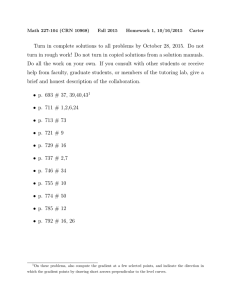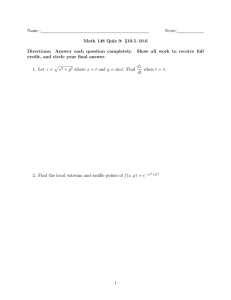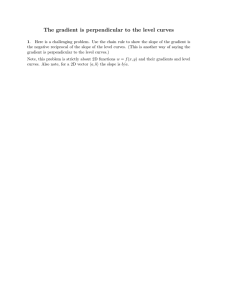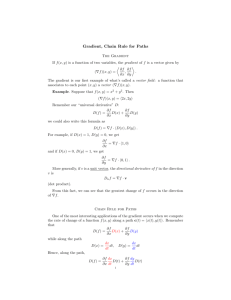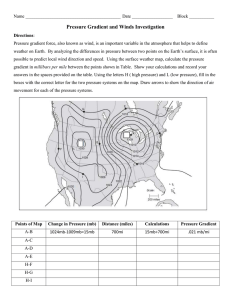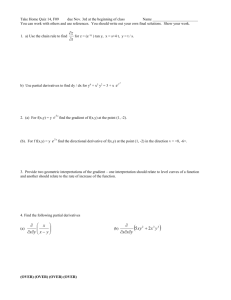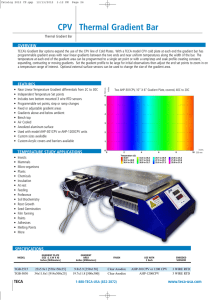The GRADIENT, the LEVEL CURVES and the GRAPH of a function
advertisement
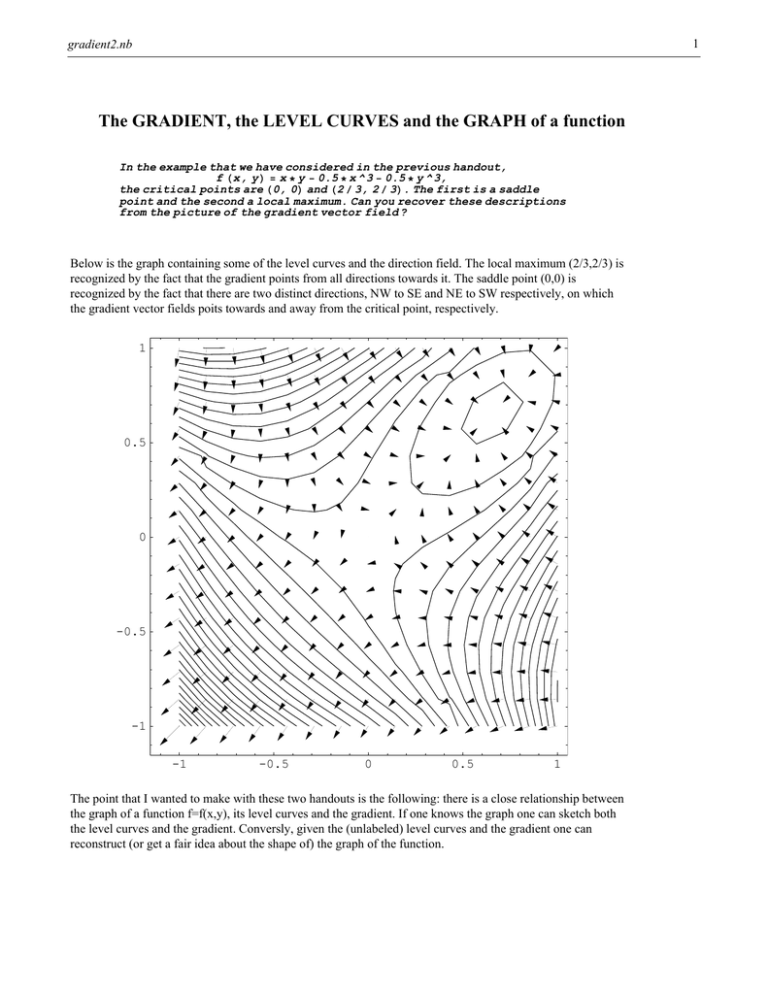
1 gradient2.nb The GRADIENT, the LEVEL CURVES and the GRAPH of a function In the example that we have considered in the previous handout, f Hx, yL = x * y - 0.5 * x ^ 3 - 0.5 * y ^ 3, the critical points are H0, 0L and H2 3, 2 3L. The first is a saddle point and the second a local maximum. Can you recover these descriptions from the picture of the gradient vector field ? Below is the graph containing some of the level curves and the direction field. The local maximum (2/3,2/3) is recognized by the fact that the gradient points from all directions towards it. The saddle point (0,0) is recognized by the fact that there are two distinct directions, NW to SE and NE to SW respectively, on which the gradient vector fields poits towards and away from the critical point, respectively. 1 0.5 0 -0.5 -1 -1 -0.5 0 0.5 1 The point that I wanted to make with these two handouts is the following: there is a close relationship between the graph of a function f=f(x,y), its level curves and the gradient. If one knows the graph one can sketch both the level curves and the gradient. Conversly, given the (unlabeled) level curves and the gradient one can reconstruct (or get a fair idea about the shape of) the graph of the function.
